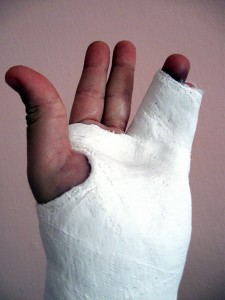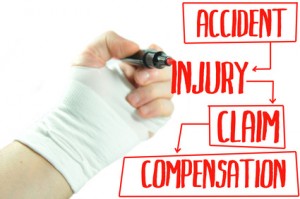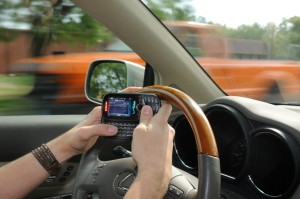 Here’s what a good Personal Injury Lawyer can do for you:
Here’s what a good Personal Injury Lawyer can do for you:
• Remove the constant stress and hassle of having to deal directly with the insurance company adjuster. (You’ll finally be able to focus on getting well with greater peace of mind).
• Stop harassing phone calls from collection agencies about your unpaid medical bills. (Make sure that the insurance company pays for all your outstanding medical bills).
• Have a strong advocate on your side making sure that the insurance company plays by the rules. (You’ll finally have someone who will watch your back).
• Hire economic experts who will evaluate your future loss of earnings. (Maximize a just and fair settlement in the event you are unable to function at 100% capacity at work).
• You’ll have someone to explain what your legal rights are in plain everyday language. (You won’t find yourself being taken advantage of by a fast talking insurance adjuster).You’ll know how the legal system works. (You’ll never find yourself blindsided by the insurance company).
• Collect critical evidence including: police reports, statements from eye witnesses, photographs, and videos, if available. (Cases are won or lost by the amount of evidence that is presented, and now you will have someone who will invest in making sure all the bases are covered).
• Make sure that you don’t sign any unnecessary documents that could potentially damage your case. (This is critical when it comes to obtaining a fair settlement).
• Determine the amount of insurance coverage that’s available. (You’ll never be fooled into taking a low ball offer because the other side says there is minimal coverage).
• Provide letters of protection to treating physicians if you don’t have adequate insurance coverage. (You’ll be able to get the medical treatment you need).
• File a bad faith lawsuit against the insurance company should they fail to pay your claim. (Avoid all the endless hassles of unpaid medical bills).
• If your case can’t be settled, file a lawsuit or demand arbitration. (This one is pretty straight forward).
• Prepare client for trial in the event that the case can’t be settled. (Remove your stress from appearing in court).
• Make sure that your medical records are updated. (Your medical records are a key component to settling your case, and everything must be accurate).
• If you are unable to return to work an attorney will help you collect disability benefits. (You’ll be able to put food on the table in the event that you are unable to return to work).
• Collect medical records from treating physicians and hospital. (Take care of all the leg work for you).
• Send your medical reports to the insurance company.
• Prepare you for independent medical evaluation. (Help you to understand what the insurance company doctor will be looking for to undermine your claim).
• Send a registered nurse with the injured victim to assist them during the independent medical evaluation. (This helps them to feel comfortable knowing that someone else is on their side)
• Prior to sending records to the other side make sure that they have been properly reviewed.
• Keep you informed as to how your case is progressing. (You can call or make an appointment to stop by to see how your case is moving along).
• Prepare and present medical experts (treating physicians) at trial. (This will help the doctor present evidence that is beneficial for your claim).
The Cunnane Law Office has provided this content for informational purposes only. You should refer your questions to a personal injury attorney.
www.cunnanelaw.com











 You Deserve an Advocate
You Deserve an Advocate